Appleby History > Memories > A Country Diary Part 2
A Monthly Country Diary
July to December
by Anne Silins
July
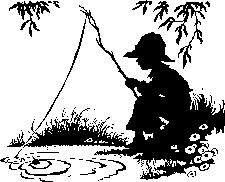 In July we could have one of those rare, lovely days. They could be so beautiful, like a taste and smell of all that is good. The front lawns would be full of daisies and what wonderful, smart, little flowers they are. Not only could I make daisy chains with them, but they were the best light meters in England. In full sunshine they open wide and as a summer day turns cloudy and dark, the petals closed down. The roses and honeysuckle in Grandma’s garden, the peas, beans and strawberries in Grandpa’s garden would all be beautiful. I was allowed to dig alongside Grandpa, and usually my spot was underneath the gooseberry bushes. Some children thought that babies came from under the gooseberry bushes. I didn’t..
In July we could have one of those rare, lovely days. They could be so beautiful, like a taste and smell of all that is good. The front lawns would be full of daisies and what wonderful, smart, little flowers they are. Not only could I make daisy chains with them, but they were the best light meters in England. In full sunshine they open wide and as a summer day turns cloudy and dark, the petals closed down. The roses and honeysuckle in Grandma’s garden, the peas, beans and strawberries in Grandpa’s garden would all be beautiful. I was allowed to dig alongside Grandpa, and usually my spot was underneath the gooseberry bushes. Some children thought that babies came from under the gooseberry bushes. I didn’t..
Early one July morning, milking and breakfast finished, my young Uncle headed for the cupboard in the brew house and reached for his fishing rod. With a nod of his head he signalled me to follow him. Like a puppy I ran behind him. He knew the fishing spots, and we headed up to the pond in the top field. Once there, we gained a vantage point along a slippery branch of a tree. This branch was over the deepest part of the pond. Uncle cautioned me to keep quiet as he set his float to the correct depth. Silence did not reign for long. I saw the float bob up and down a couple of times before it ran away and was drawn under. I shouted, “A bite, a bite” and Uncle gave me an enthusiastic push. I went headlong into the pond. The pond was by no means pure spring water. I stirred up a lot of muddy water and Uncle John knew I couldn’t swim. He came in after me. We both swallowed a lot of that dirty pond water, me a great deal more than Uncle. I was gasping and crying for him to help me. Finally we stood on the bank, a sad looking pair and we dripped our way back to the house. The fishing pole was lost. How were we going to explain our saturated state to Grandma? She took one look at us and declared we looked like drowned rats. We must have been a sight, for then she seemed to see the funny side. She lashed at us with our wet socks and then she laughed until tears rolled down her cheeks. I was forced into the bath upstairs and Uncle into the zinc tub in the brew house. We were somewhat in disgrace, but after the tale had been told and retold at lunch, everyone treated us as heroes.
Sweet summer days passed in happy succession.
August
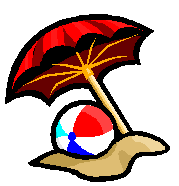 In August I usually spent some time with my Mother’s favourite sister in Leicester. She would take me to the Abbey Park Show and the Market Bosworth Gymkhana. The gymkhana trips were a love - hate experience for me. I hated crowds and got a little claustrophobic, but I loved the pageantry of the event.
In August I usually spent some time with my Mother’s favourite sister in Leicester. She would take me to the Abbey Park Show and the Market Bosworth Gymkhana. The gymkhana trips were a love - hate experience for me. I hated crowds and got a little claustrophobic, but I loved the pageantry of the event.
If we were lucky, my Auntie and Uncle would take me for a day trip to Felixstowe or Skegness. Those day trips to Skegness and Felixstowe were celebratory trips. They were booked months in advance by Uncle. Then no matter if it was cloudy and the temperature 43 degrees F., we had the picnic hamper packed and ready. We were always optimistic, for there might be a break in the clouds, and anyway the tickets were paid, and the seats on the bus were reserved. We often arrived with the sea looking dull and gray in the distance. I wanted to be off to the nearest bit of sandy beach, but first, wouldn’t everyone like a nice cup of tea? Drinking tea, no matter how young or old you are, is an essential part of all activities in England. We had it at every meal. If we went anywhere, we stopped on the way at a teashop. If people dropped by at the farm you gave them tea. When something bad happened, Grandma would try to set things right with a cup of tea. My Auntie followed the same routine.
When we got to the beach, a great deal of paraphernalia had to be unpacked. There were beach towels, sunhats, the picnic hamper, beach balls and a peculiar English item called the ‘windscreen’ (Ed. windbreak ?). It was not for a car, but a windscreen for the beach. It was a length of brightly striped canvas about three yards long and forty inches high. It had sticks at either end which Uncle Harry hammered into the sand. Nearly everyone had one and all up and down the beach they suddenly appeared as if growing out of the sand. We all huddled behind this screen to escape the flying sand. Uncle wore his two piece suit, a tie, and woolly pullover, but instead of his hat a white handkerchief on his head. This handkerchief had a knot tied in each corner which kept it on his head, for the wind was usually quite strong off the North Sea.
Once a sand castle or two had been built we would have our lunch from the prepared hamper. I loved Auntie’s tomato and cheese sandwiches. These tasted so much better for having been made the night before and then squashed in a tin and jostled on the bus journey from Leicester. The essential item on a cool to cold day was the vacuum flask. We sat shielded by the screen and warmed up with more hot tea from the large flask. In the afternoon, a look up at the grey sky would convince Uncle that it was time for a stroll on the pier. Here we would buy rock candy or ice lollies while Uncle checked out the rude postcards for sale. If I was good, Auntie would treat me to a donkey ride.
After a tea-shop tea in late afternoon it was time to find the hired coach. The journey home started off with a lot of singing, but soon people nodded off and the next thing we would hear was the drivers voice as we entered the Leicester bus station.
Back at the Farm the sun warmed the crops and they started to turn yellow. The cows kept to their daily schedule of fields and milking, the farm carried on almost alone and the sun shone down on these lazy days. August often brought thunderstorms. The thunderstorms filled up the three ponds where the cows went in search of a drink on a hot afternoon. The corn would be growing so fast, I thought I could see it grow taller each day. We watched the crops as they ripened, always keeping an eye on the sky for rain and thunder heads which could flatten our fields. Summer was ending and Autumn was at the door.
September
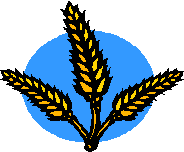 By September the crops were ripe and gold. It was time for the harvest. Out in the fields a space around the gates was opened up with a scythe then the self-binder was brought in to cut wide swathes. It would go round and around working inwards towards the centre of the field. The sheaves shot out of the back of the self-binder and just lay there in the sun. The men followed along set the sheaves upright by leaning them together in groups of eight. They formed hut-like structures known as stooks. Every farmer seemed to have his own idea for the formation of a stook, each farmer passing judgement on his neighbours method. When they had stood long enough for the wind and sun to dry them, they were ready for loading and carting back to the ‘rick’ yard. Those were long days, often not finished until the sun was setting.
By September the crops were ripe and gold. It was time for the harvest. Out in the fields a space around the gates was opened up with a scythe then the self-binder was brought in to cut wide swathes. It would go round and around working inwards towards the centre of the field. The sheaves shot out of the back of the self-binder and just lay there in the sun. The men followed along set the sheaves upright by leaning them together in groups of eight. They formed hut-like structures known as stooks. Every farmer seemed to have his own idea for the formation of a stook, each farmer passing judgement on his neighbours method. When they had stood long enough for the wind and sun to dry them, they were ready for loading and carting back to the ‘rick’ yard. Those were long days, often not finished until the sun was setting.
Threshing days were difficult days too. From the moment the great belt started to rotate between engine and thresher, and the drum in the thresher itself began its loud monotone hum, there was no respite. Sheaves were fed into the bowels of the machine with relentless regularity. Out came the corn, straw and chaff, all separated. Men ran up granary steps carrying heavy sacks of grain. But the lightest and dirtiest job was collecting the chaff, which would be used in winter for bedding.
There were always a few times when the thresher would break down. Men would stand around idle. No one worked but they still had to be fed and paid. Various things could go wrong. A belt could break, a fan blade break off the blower, a shaft could fly apart or the grain pan just become clogged. Someone would be sent into ‘Isons’, the ironmonger at Ashby, for a part so that work could resume as quickly as possible. Men got tired, but it was not nerve-tiring - simply physically tiring. The next morning they were ready to start again. Grandma, with some help from a village girl, cooked mounds of food for the work gangs. Stews, roasts, huge bowls of potatoes and vegetables weighted the kitchen table down. Fruit pies and custards filled the side board.
September also meant the Ashby Statutes. Ashby-de-la-Zouch was well known for its annual September fair. The fair had a round-about, swings, a cake walk, a Ferris wheel, a Helter Skelter and dodgems. There were many stalls selling everything from clothes to pottery. Originally the Ashby Fair had been a hiring fair for servants and labourers seeking to change their employment. In former times they would arrive at the fair wearing a ribbon in their hair, but this practice had long gone out of style when I was young. When I was about ten years old, I won a bread knife on a draw at the Fair. I proudly gave it to my Mother and she used it all her life.
I greeted the new school year with less enthusiasm when September arrived. On clear mornings I would wait for the bus while sitting on a milk churn and watched for skylarks as they rose higher and higher into the sky singing all the way. I used to wonder if their stomachs rose in their mouths as mine did when I was on the Ferris wheel.
October
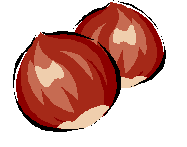 Autumn colours at their best. What an irony it is that as the days grow cooler the land, grasses and trees turn to the colour of the sun. The hedgerows and trees changed from green to yellow and gold. As autumn advanced most of my friends in the village were occupied in helping to harvest the produce from the family allotment. The main work of summer was over and all that remained was to gather the produce and then tidy up. Bonfires were set in the allotments with all the useless rubbish and left-overs. In our orchard Grandpa supervised the picking of all the fruit from the trees. Apples were taken to the lofts and covered with old sacking. Plums went into the kitchen for jam making. Pears went into the larder and were eaten quickly - everyone loved them.
Autumn colours at their best. What an irony it is that as the days grow cooler the land, grasses and trees turn to the colour of the sun. The hedgerows and trees changed from green to yellow and gold. As autumn advanced most of my friends in the village were occupied in helping to harvest the produce from the family allotment. The main work of summer was over and all that remained was to gather the produce and then tidy up. Bonfires were set in the allotments with all the useless rubbish and left-overs. In our orchard Grandpa supervised the picking of all the fruit from the trees. Apples were taken to the lofts and covered with old sacking. Plums went into the kitchen for jam making. Pears went into the larder and were eaten quickly - everyone loved them.
Grandma was a good country cook. She said a stew had no flavour without the addition of a good chunk of chopped swede. During the frugal years of the war and food rationing, the lowly swede would often end up on our dinner plate as the vegetable. During dinner preparation I would be sent out behind the barns to the ‘clamp’ to get the swede. Some were so large and heavy that if thrown with accuracy at a nearby cat, I could have performed murder. I didn’t, of course. I can remember wartime school dinners. They often were a slice of fried Spam, runny mashed potatoes and chewy yellow cubes of swede. Yuk!! These swedes had formerly been grown mainly for cattle fodder. Years later in Canada, I learned this same vegetable had a different exotic-sounding name, the rutabaga. But to me a swede is still a swede, and not from Sweden.
To find nut trees around Appleby was not easy but we did have some hazelnut trees growing in one of our hedges. They had quite a good yield. Over towards Culloden Farm, on the border were two walnut trees. They gave lovely big nuts, full of plump meat. Grandpa used to say that hazelnuts were for women and children, while walnuts were for men, making them all tanned both inside and out. Grandpa was a good nutter and would keep foraging deeper and deeper into the branches of a tree. On one of our nutting forays he spotted a whole bunch of big nuts out on the end of a branch. “Climb up on that limb,” he told me. “You’ll not hang so low as I,” he said in explanation. The limb was slender and the more I struggled my way along, the lower the limb sank to the ground. Soon my weight bowed the branch to the ground so that he was able to gather all the nuts. He finished at about the same time as I fell off into a bed of dried old stinging nettles. We walked back over fields of stubble carrying our bag of nuts and I hurried to keep up with him, as I scratched my legs that were burning from the stingers.
November
 When I lived in Appleby in the 1940's November the 5 th was an important date. That was the date to remember that Guy Fawkes and his companions had tried to blow up the Houses of Parliament in London. November 5 th 1605. When we learned this particular piece of history in the village school, the teacher took great pleasure, almost morbid pleasure in telling the class that one of the companions of Guy was a man by the name of BATES, who came from Leicestershire. As my name was Bates, he would glare at me as if I, in someway, was actually responsible. He then told us with great relish how when they were caught they were all put on the ‘rack’ and afterwards they were ‘drawn and quartered’. I shall never forget the terror and nightmares I had, never daring to tell my Grandparents about the teacher’s story.
When I lived in Appleby in the 1940's November the 5 th was an important date. That was the date to remember that Guy Fawkes and his companions had tried to blow up the Houses of Parliament in London. November 5 th 1605. When we learned this particular piece of history in the village school, the teacher took great pleasure, almost morbid pleasure in telling the class that one of the companions of Guy was a man by the name of BATES, who came from Leicestershire. As my name was Bates, he would glare at me as if I, in someway, was actually responsible. He then told us with great relish how when they were caught they were all put on the ‘rack’ and afterwards they were ‘drawn and quartered’. I shall never forget the terror and nightmares I had, never daring to tell my Grandparents about the teacher’s story.
After school on Guy Fawkes Day we children would race around yelling “Remember, remember the 5 th of November” at the top of our lungs. This caused great upset for any cows being moved at this time of day - milking time. Women stood in their doorways shaking their fists and flapping their aprons in our direction. You see an upset, excited cow will usually loose control of its’ bodily functions. The lanes soon became both messy and smelly. But, once we all got started there was no stopping us. All during the week before November 5 th the older boys and girls had been going from door to door collecting rubbish. All this rubbish was gathered and carried to a nearby field just off Church Street where a huge bonfire was built. As dusk approached, a prepared straw effigy of Guy was set on top of the bonfire. Everyone assembled and the fire was lit. The leathery smell of damp leaves blended with the smell of burning wood, sparks flew in all directions. No one seemed to worry about sparks, as the surrounding grass was always wet from November rains. All of us faced towards the fire. Soon our fronts would be as hot as an ironing board and steam rose from our clothing and our Wellington boots. What a merry time it was, the excited voices of children combined with the gossiping of the adults. As the fire burned lower, older boys put potatoes into the embers for everyone. These potatoes had been begged from local farmers. Roasted potatoes never tasted so good as those crisp, burnt ones on a cold winter evening.The fire was nearly out when we younger children were hurried away by the teenagers. We followed our families home, dragging our feet in the long, wet grass. In the distance behind us, we could hear the giggles, squeals and laughter as the older boys chased the older girls towards hedges, haystacks and barns. We knew the evening was just beginning for them, but we really were never quite sure what it all meant.
On wet November days, the driveway would be very muddy. I would tie my shoe laces together and hang my shoes around my neck while I splashed my way down the drive in my Wellington boots. Grandma had instructed me to place my Wellington boots upside down on the sloping side of the ditch. At the end of the school day, it would be getting dark as I hopped from foot to foot changing back into my Wellington boots. The boots would be cold and damp, or ‘as cold and damp as a witches’ heart’, as my Uncle said.
Milking time in November meant the sheds were alight with efficient electric, not the soft lamp light we used in the house. The cow sheds had electricity and electric milking machines. Our living came partly from milk and Grandpa said we mustn’t forget that. Cows were important - the house wasn’t. The cow shed was a cozy place - warm and smelling of healthy manure and hay. Cows are very much creatures of habit, and their routines must be adhered to in order to ensure their co-operation. First, the loose hay was forked into their mangers. Then the cows were tied up, and the milking machines set ready. Milking was a soothing activity with the gentle rhythm of the machines. Afterwards I stood and watched my Uncle tip loads of steaming manure on the muck heap out behind the sheds. A small amount of milk not suitable for the dairies was poured down the chute into the pigs trough. It steamed and theygrunted their appreciation.
Beginning in late November and on into January, was pig killing time. Farmers at this time of year worried more about the health of their pigs than the health of the family. Pigs rarely fought against illness, they just lay down and died. Grandpa killed the pigs himself. He salted down the shoulders, sides and legs. These would last through much of the winter. Both my Grandparents got busy with the remainder of the pig, making fifteen or so pork pies, which lasted well in the cool winter weather as we placed them on the marble slab in the larder. Sausages, faggots and Grandpa’s famous crackling pig skins were also made. The lard from the rendered fat went into the pies and pastries that Grandma made all year round. The liver, kidney, heart and the sweetbreads all were used for a good ‘fry-up’. When the pig was killed, the blood from the throat was caught in a basin, then made into black pudding. ‘Brawn’ head cheese, was made from the pig’s feet and face, a few vegetables being added for colour. ‘Brawn’ looked very fancy on a plate. It has been often said we used everything from the pig, except the squeak!
In November, the normally gray shadows became even grayer; the wind around the barns was just a little bit colder. When the wind was growling in the farmhouse chimneys, and rain was driven by the north-east wind, I would wait until the very last minute to make my run to the brick lavatory in the front garden. We all ‘held on’ as long as we could bear on a cold winter evening. In the dead of winter, the wind whistled under the seats of the lavatory. In summer, this breeze had a welcome hygienic effect, but in those frosty days of November, a strong draft of polar air swept up from below and poured through the opening in the seat. When the temperature dropped well below freezing, the narrow cart and large tractor wheels barely marked the frozen ground. On one occasion I remember that the car skidded off the drive on the way down the driveway and then careered into the ditch. It had to be abandoned that evening, and Grandpa arrived at the house looking like a snowman. The next morning, there was far too much snow in Snarestone Lane for the Midland Red bus to make the trip, so I got to stay at home and watch the tractor attempt to pull the car out of the ditch. Both the Massey Ferguson tractor and the Fordson Major were needed to pull the car from its awkward position in the ditch. Finally after a whole morning’s work it was pulled back to the tractor shed.
December
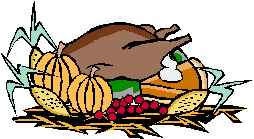 The days of the deep-freezer, even the days of the humble fridge, were still far in the future. There was no buy ahead turkey or chicken from a super-market for Christmas dinner. Some weeks before that first Christmas on the Farm I had noticed that Grandma’s attitude to a scruffy turkey had changed. As it pecked its way around the yard it found an old metal pie plate full of feed near the back door. Previously it had been shooed away unceremoniously whenever it made an appearance. Now, no service was too much trouble. This scruffy turkey couldn’t believe its good fortune and it was beginning to actually strut its way around the barn yard. Even before it had opened its eyes each morning , corn had been laid out for it. In the three weeks’ run-up to Christmas it was transformed from a scruffy weakling, to a turkey of size with sleek glossy feathers. Grandma had her own agenda for that turkey. On December 23 rd its head was off. On Christmas Day all of us except Grandpa appreciated that turkey. He really had expected a fat goose, for that is what we usually had. Grandma said she would see what she could manage for next year, if he would buy her some goslings. And so she started to keep geese. The geese, as I well remember, were as good as a dog for sounding an alarm. Enter the yard and a great long neck was stretched towards you, hissing as if the whole Germany Army was invading. Throughout the year I kept telling myself and those geese that come Christmas they would be sorry. One would be for our dinner and the rest would have the same fate on someone else’s dinner table.
The days of the deep-freezer, even the days of the humble fridge, were still far in the future. There was no buy ahead turkey or chicken from a super-market for Christmas dinner. Some weeks before that first Christmas on the Farm I had noticed that Grandma’s attitude to a scruffy turkey had changed. As it pecked its way around the yard it found an old metal pie plate full of feed near the back door. Previously it had been shooed away unceremoniously whenever it made an appearance. Now, no service was too much trouble. This scruffy turkey couldn’t believe its good fortune and it was beginning to actually strut its way around the barn yard. Even before it had opened its eyes each morning , corn had been laid out for it. In the three weeks’ run-up to Christmas it was transformed from a scruffy weakling, to a turkey of size with sleek glossy feathers. Grandma had her own agenda for that turkey. On December 23 rd its head was off. On Christmas Day all of us except Grandpa appreciated that turkey. He really had expected a fat goose, for that is what we usually had. Grandma said she would see what she could manage for next year, if he would buy her some goslings. And so she started to keep geese. The geese, as I well remember, were as good as a dog for sounding an alarm. Enter the yard and a great long neck was stretched towards you, hissing as if the whole Germany Army was invading. Throughout the year I kept telling myself and those geese that come Christmas they would be sorry. One would be for our dinner and the rest would have the same fate on someone else’s dinner table.
I remember the week before Christmas, Uncle would get a tree from the woods - not always a pine or a fir, but it was a tree. The decorations were brought down from the attic and we would all decorate the tree. Paper chains made from coloured strips of paper were hung diagonally across the sitting room and the front room. There is something magical about Christmas Eve in the lives of children. It lasts only the one brief evening, but is like a spell, mysterious and magical.
On Christmas morning I found my stocking, hanging from the knob of my bed. I had been warned that if I was naughty my Christmas stocking might only contain a lump of coal. But it bulged with oranges, white and pink candies and Turkish delight. I loved the oranges and the candies. The Turkish delight was not a favourite of mine so I shared it with Grandpa because it was his favourite.
The front room was transformed beyond belief. Holly and evergreens and bright paper streamers were everywhere. The mantle, usually so prim and severe, now was all gay with holly, bells and silver angels. In the front room gifts were laid out on a table, never put under the tree. I could always count on a good number of books, for I was a great reader. The Enid Blyton “Five” series were a big favourite with me and I read and re-read them. Also I could always count on a new fountain pen. Waterman, Sheaffer and Parker pens, at one time or another I had them all. They had a gold-nib in those days, and a rubber reservoir inside that held the ink.
On Christmas morning, Grandma pulled her chair right up to the radio to hear the Christmas message from King George V1. Grandma was a royalist to the core, and sat on her chair with great dignity for she knew that the King was speaking to her and her family. Uncle turned the radio on and moved the dial to the correct frequency. If he had the aerial wire placed correctly the sound seemed to come out so loud you could hear it from the other rooms. Most of the time we listened to the radio for war news or occasionally to hear the scores of a cricket match. I was quite convinced that there were little people inside the radio and that they were actually talking just to us. Sometimes a tube would blow and the radio would light up and get warmer than usual, but no sound would come out. Someone would have to go to Ashby to buy a new tube.
Christmas dinner would be a feast, and the table was set with the best silver and china. How grown up I felt, except for my legs, on those itchy horse-hair chairs. My skirts were never long enough to cover all of my legs, and if I did manage to pull my skirt down far enough, the horse-hair still scratched the back of my knees.
So this was how the year progressed for a little girl on a farm in Appleby Magna in the 1940's. I can’t think of a happier place to have grown up. For you that live in Appleby now, hang on to that village feeling and that village life. You have something that is so very special. Canada and the United States of America are wonderful places to live, but they have never been able to capture that feeling of belonging which Appleby Magna village gave to me as a child.
By Anne Silins (nee Bates)

